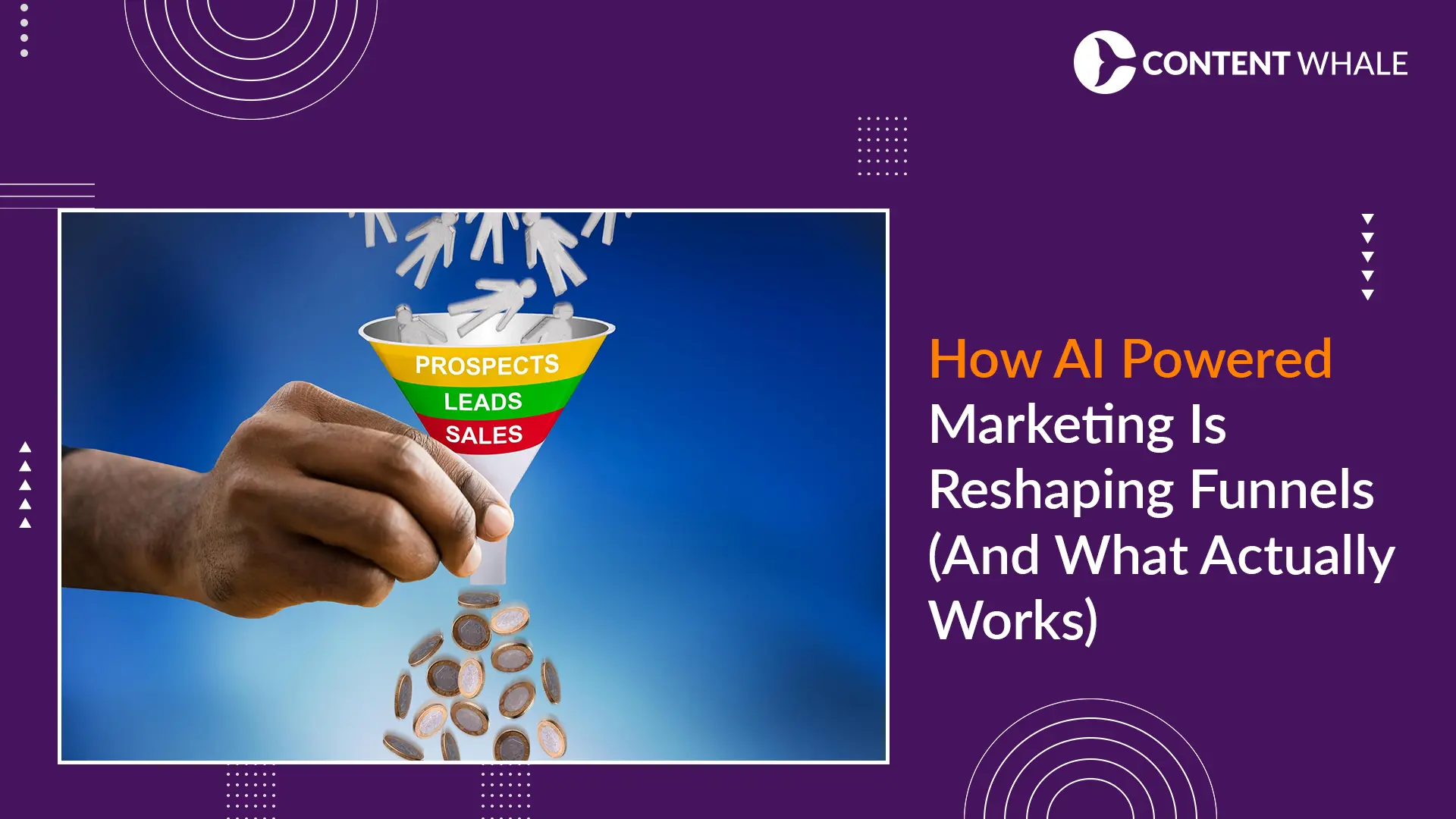Quick Summary:
- Learn the truth behind common SEO myths.
- Improve your SEO strategy with accurate information.
- Debunk myths and adopt effective SEO best practices.
This summary captures the essence of the blog, emphasizing the importance of understanding and addressing SEO misconceptions. It highlights the goal of providing SEO facts that can help refine your approach to search engine optimization and online marketing. By debunking these myths, readers can adopt more effective SEO techniques and improve their digital presence.
SEO myths are everywhere, and they often mislead those trying to enhance their online presence. These SEO misconceptions can derail your efforts and waste valuable time and resources. In the fast-paced world of online marketing, adhering to outdated or incorrect practices can significantly impact your website’s performance.
Understanding SEO truths is essential for creating an effective SEO strategy. Misguided beliefs about search engine optimization can lead to poor decisions, such as overstuffing keywords or neglecting the importance of high-quality backlinks. These digital marketing myths can prevent you from reaching your full potential online.
This blog will address five common SEO myths that persist in 2024. By debunking these myths and providing accurate SEO facts, you’ll be better equipped to improve your SEO best practices and achieve better results. Whether you’re a seasoned professional or new to digital tips and SEO techniques, understanding these truths will help you refine your approach and enhance your website’s visibility.
SEO Myth 1: SEO Is a One-Time Task

Many believe that SEO is a one-time effort, but this couldn’t be further from the truth. This SEO myth can mislead businesses into thinking they can set up their website once and then forget about it. However, search engine optimization is a continuous process that requires regular updates and maintenance.
The Reality of Ongoing SEO
SEO isn’t something you can implement and then ignore. Search engines, like Google, frequently update their algorithms, affecting how websites are ranked. Therefore, staying up-to-date with these changes is essential to maintain and improve your rankings. SEO truths highlight that the factors influencing search rankings can change, making it necessary to adjust your strategies accordingly.
Maintaining an Effective SEO Strategy
To keep your website optimized, consider these digital tips:
- Regular Content Updates: Keep your content fresh and relevant. Search engines favor websites that consistently provide new and valuable information.
- Monitor Algorithm Changes: Stay informed about changes in search engine algorithms. Tools like Google Search Console can help track your website’s performance and alert you to any issues.
- Analyze and Adapt: Use analytics tools to understand how users interact with your site. Adjust your SEO strategy based on this data to enhance user experience and improve rankings.
Continuous Improvement
SEO is a dynamic field, and what works today might not work tomorrow. Regularly reviewing and refining your SEO techniques ensures that your website remains competitive. Investing time and effort into ongoing SEO practices is crucial for long-term success in online marketing.
By debunking the myth that SEO is a one-time task, you can focus on continuous improvement, leading to better search engine rankings and increased traffic. Embrace the ongoing nature of SEO best practices to keep your website at the forefront of search results.
SEO Myth 2: Keyword Stuffing Improves Rankings
A persistent SEO myth is the belief that stuffing a webpage with keywords will boost its ranking on search engines. This misconception can lead to poor content quality and can harm your SEO efforts.
The Reality of Keyword Stuffing
Keyword stuffing refers to the practice of overloading a webpage with keywords in an attempt to manipulate search engine rankings. This outdated tactic is not only ineffective but can also result in penalties from search engines like Google. Modern search engine optimization focuses on user experience and relevance rather than sheer keyword density.
Why Keyword Stuffing is Harmful
- Penalties from Search Engines: Google’s algorithms are designed to detect and penalize websites that engage in keyword stuffing. This can lead to lower rankings or even removal from search results.
- Poor User Experience: Overusing keywords can make your content difficult to read and unengaging for visitors. This can increase bounce rates and decrease the time users spend on your site, negatively impacting your SEO.
- Damaged Credibility: Websites that focus on keyword stuffing often appear spammy, which can damage your brand’s credibility and trustworthiness.
Effective Keyword Use
Instead of keyword stuffing, focus on these SEO best practices:
- Natural Integration: Use keywords naturally within your content. Ensure they fit seamlessly into sentences and paragraphs, enhancing the readability and flow.
- Keyword Variations: Use variations of your target keywords. This approach helps cover different search terms without overloading your content with repetitive phrases.
- Quality Content: Prioritize creating high-quality, informative content that addresses the needs and interests of your audience. This is a cornerstone of a successful SEO strategy.
Best Practices for Keyword Integration
- Title and Headings: Incorporate primary and secondary keywords in titles and headings to signal the topic to both users and search engines.
- Meta Descriptions: Craft compelling meta descriptions that include relevant keywords to improve click-through rates.
- Content Body: Ensure keywords are distributed naturally throughout the content without overuse.
By moving away from the digital marketing myth of keyword stuffing and focusing on quality content and user experience, you can enhance your SEO strategy. Understanding these SEO truths will help you create content that ranks well and engages your audience, ultimately leading to better performance in online marketing.
SEO Myth 3: Backlinks from Any Source Are Valuable

One of the most common SEO myths is the belief that all backlinks are beneficial for improving search engine rankings. This SEO misconception can lead to misguided efforts in acquiring as many backlinks as possible without considering their quality.
The Reality of Backlink Quality
Backlinks, or inbound links from other websites, are a crucial part of search engine optimization. However, not all backlinks are created equal. Search engines, like Google, prioritize the quality of backlinks over quantity. High-quality backlinks from reputable sources can significantly boost your site’s credibility and rankings, while low-quality or spammy backlinks can harm your SEO efforts.
Importance of High-Quality Backlinks
- Authority and Trustworthiness: Backlinks from authoritative websites signal to search engines that your site is trustworthy and relevant. These high-quality backlinks are a strong indicator of your site’s credibility.
- Relevance: Links from websites related to your industry or niche are more valuable. They show that your content is relevant and useful to a specific audience.
- SEO Penalties: Engaging in practices to acquire low-quality backlinks can lead to penalties. Google’s algorithms can identify and penalize sites that use spammy link-building tactics.
Tips for Acquiring High-Quality Backlinks
- Create Valuable Content: High-quality, informative content naturally attracts backlinks. Focus on producing articles, infographics, and resources that others find useful and worth linking to.
- Guest Blogging: Write guest posts for reputable websites in your industry. This can help you earn high-quality backlinks while reaching a broader audience.
- Build Relationships: Network with influencers and other industry leaders. Building relationships can lead to natural backlink opportunities as others share your content.
- Monitor Your Backlink Profile: Use tools like Google Search Console and Ahrefs to regularly check the quality of your backlinks. Disavow any low-quality or spammy links that could harm your site’s SEO.
Effective Link Building Strategies
- Focus on Relevance: Target websites and blogs that are relevant to your industry. A backlink from a related site is more valuable than one from an unrelated source.
- Diversify Your Links: Aim for a diverse backlink profile with links from various reputable sources, including blogs, news sites, and industry-specific directories.
- Earn Links Naturally: Create compelling and shareable content that naturally earns backlinks. This aligns with SEO best practices and ensures your link-building strategy is sustainable.
By debunking the digital marketing myth that all backlinks are valuable, you can refine your SEO strategy to focus on acquiring high-quality links. Understanding these SEO facts will help you build a robust backlink profile that enhances your online marketing efforts and improves your site’s rankings.
SEO Myth 4: Social Media Directly Impacts SEO Rankings
A prevalent SEO myth is the belief that social media activity directly influences search engine rankings. This misconception can lead businesses to overemphasize social media engagement in hopes of boosting their SEO. Understanding the true relationship between social media and search engine optimization is essential for developing an effective SEO strategy.
The Reality of Social Media and SEO
Social media does not directly affect search engine rankings. Google’s algorithms do not consider social signals—likes, shares, and comments—as direct ranking factors. However, social media can still play an indirect role in enhancing your SEO efforts.
How Social Media Supports SEO
- Increased Visibility and Traffic: Social media platforms can drive significant traffic to your website. When users share your content, it can reach a broader audience, potentially leading to more site visits.
- Content Distribution: Sharing your content on social media helps distribute it to a wider audience. This increased exposure can result in more backlinks as other websites discover and link to your content.
- Brand Awareness: Active social media presence enhances brand visibility and recognition. A well-known brand is more likely to attract searches, indirectly boosting its SEO.
- Engagement Metrics: While not direct ranking factors, high engagement rates on social media can indicate content quality. Quality content is more likely to earn backlinks and citations, which do affect SEO.
Tips for Leveraging Social Media for SEO
- Create Shareable Content: Develop content that is engaging and valuable, making it more likely to be shared across social media platforms. Infographics, videos, and in-depth articles tend to perform well.
- Optimize Social Media Profiles: Ensure your social media profiles are complete and reflect your brand. Include links to your website to drive traffic and improve visibility.
- Engage with Your Audience: Active engagement with your followers can foster a community around your brand. Responding to comments and messages promptly can enhance your online reputation.
- Use Social Media for Content Promotion: Regularly share your blog posts, articles, and other content on social media to increase their reach and potential for earning backlinks.
Indirect Benefits of Social Media on SEO
While social media does not directly impact rankings, its indirect benefits can significantly enhance your online marketing efforts. By driving traffic, increasing brand awareness, and encouraging backlinks, social media can support a comprehensive SEO strategy.
Effective Social Media Practices
- Consistent Posting: Maintain a consistent posting schedule to keep your audience engaged and informed.
- Quality Over Quantity: Focus on creating high-quality content that provides value to your audience rather than merely increasing the volume of posts.
- Analyze Performance: Use analytics tools to track the performance of your social media efforts. Adjust your strategy based on what works best for your audience.
Debunking the myth that social media directly impacts SEO rankings allows you to utilize social platforms more effectively. Understanding these SEO facts helps you integrate social media into your broader SEO techniques, enhancing your overall digital presence and marketing success.
SEO Myth 5: More Pages Mean Better SEO

A common SEO myth suggests that having more pages on your website will automatically improve your search engine rankings. This belief can lead to businesses creating unnecessary or low-quality pages, thinking quantity trumps quality. The reality is quite different.
The Importance of Quality Over Quantity
Search engines prioritize the quality and relevance of content over the sheer number of pages. Here’s why focusing on quality is essential for effective search engine optimization:
- Relevance and User Intent: Search engines aim to deliver the most relevant results to users. A few high-quality, well-optimized pages that meet user intent will rank better than numerous low-quality pages.
- Content Depth: In-depth content that thoroughly covers a topic is more likely to rank higher. Shallow, repetitive pages dilute the overall value of your website.
- User Experience: Too many pages can overwhelm visitors, leading to poor user experience. A well-organized website with high-quality content is more likely to keep users engaged and reduce bounce rates.
Tips for Focusing on High-Quality Content
- Content Relevance: Ensure each page serves a clear purpose and is relevant to your audience. Focus on topics that provide value and address the needs and interests of your users.
- Comprehensive Coverage: Create detailed and comprehensive content. Cover your topics in depth to provide real value, which is a key aspect of effective SEO techniques.
- Regular Updates: Keep your content up-to-date. Regularly review and update your pages to ensure the information remains accurate and relevant.
- User Engagement: Craft content that engages your audience. Use clear headings, subheadings, bullet points, and multimedia to make your pages more attractive and easier to navigate.
Effective Content Strategy
- Identify Core Topics: Determine the core topics that are most relevant to your audience and business. Focus on creating high-quality pages around these topics.
- Avoid Thin Content: Thin content, or pages with little value or substance, can harm your SEO. Ensure each page has sufficient content to stand on its own.
- Interlinking: Use internal linking to connect related content. This not only helps with SEO but also improves user experience by guiding visitors to additional valuable information on your site.
The Bottom Line
Debunking the digital marketing myth that more pages equal better SEO emphasizes the importance of content quality. By prioritizing high-quality, relevant, and engaging content, you can improve your SEO strategy and achieve better search engine rankings. Understanding these SEO facts helps you create a more effective approach to online marketing, focusing on what truly matters for your audience and search engines alike.
In conclusion, focusing on quality over quantity ensures your website remains valuable, engaging, and well-optimized for search engines. This SEO truth is fundamental to building a strong digital presence and achieving long-term success.
Conclusion

Debunking SEO myths is essential for developing a successful SEO strategy and achieving long-term success in online marketing. These common SEO misconceptions can lead to misguided efforts, wasted resources, and missed opportunities. By understanding and embracing the SEO truths behind these myths, you can adopt more effective SEO best practices and improve your website’s performance.
Summary of the Five Myths Debunked
- SEO Is a One-Time Task: SEO requires continuous effort and regular updates to stay effective. Keeping up with algorithm changes and maintaining fresh content are key to a successful search engine optimization strategy.
- Keyword Stuffing Improves Rankings: Overloading your content with keywords can harm your SEO. Focus on natural integration of keywords and creating high-quality, engaging content that provides value to your audience.
- Backlinks from Any Source Are Valuable: Quality trumps quantity when it comes to backlinks. High-quality links from reputable sources are more beneficial than numerous low-quality links.
- Social Media Directly Impacts SEO Rankings: While social media does not directly influence rankings, it can indirectly support your SEO by driving traffic, increasing brand awareness, and encouraging backlinks.
- More Pages Mean Better SEO: Quality over quantity is crucial. Focus on creating valuable, relevant, and comprehensive content rather than increasing the number of pages on your site.
Understanding these SEO facts helps you focus on what truly matters: quality and relevance. By prioritizing high-quality content, building credible backlinks, and engaging with your audience through social media, you can create a robust SEO strategy that drives long-term results.
At Content Whale, we specialize in creating accurate, high-quality content that aligns with the best SEO techniques. Let our expert team help you craft a winning SEO strategy. Contact us today to elevate your online presence!
FAQs
1. What is a common SEO myth about keyword usage?
A prevalent SEO myth is that keyword stuffing improves rankings. This outdated practice involves overloading a webpage with keywords to manipulate search engine rankings. However, modern search engine optimization focuses on user experience and content relevance. Natural integration of keywords and high-quality content are more effective in improving rankings. Search engines penalize sites that engage in keyword stuffing, leading to lower rankings and poor user experience.
2. How often should I update my SEO strategy?
SEO is not a one-time task; it requires ongoing effort and adaptation. Regular updates to your SEO strategy are necessary to keep up with search engine algorithm changes and evolving user behavior. Regularly review your website’s performance, update content, and stay informed about the latest digital tips and SEO techniques. Continuous improvement is key to maintaining and enhancing your search engine rankings.
3. Why are high-quality backlinks important?
High-quality backlinks from reputable sources are crucial for effective search engine optimization. These links signal to search engines that your site is trustworthy and relevant, which can improve your rankings. Conversely, low-quality or spammy backlinks can harm your SEO and result in penalties. Focus on building backlinks from authoritative websites within your industry to enhance your site’s credibility and visibility.
4. Can social media activity improve my SEO rankings?
Social media activity does not directly impact SEO rankings. However, it can indirectly support your SEO efforts by driving traffic to your website, increasing brand awareness, and encouraging backlinks. Sharing valuable content on social media platforms can lead to higher engagement and more opportunities for backlinks, which ultimately benefit your SEO strategy.
5. Is having more website pages beneficial for SEO?
The belief that more website pages automatically lead to better SEO is a digital marketing myth. Quality and relevance of content matter more than the number of pages. Focus on creating valuable, comprehensive, and engaging content that meets user needs. A well-organized site with high-quality content will perform better in search engine rankings than a site with numerous low-quality pages.





